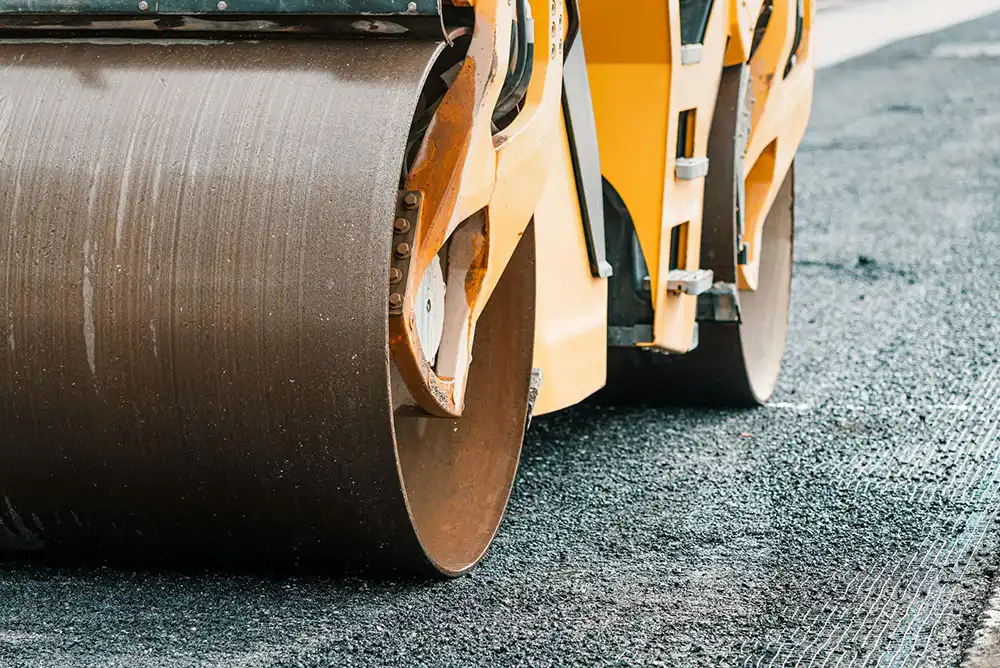Construction projects require cost-effective and durable base materials that can withstand heavy traffic and environmental pressures. The most common recycled aggregates used include asphalt millings and crushed concrete. While both originate from recycled sources, they differ in composition, performance, and best-fit applications.
Definition and Characteristics
Asphalt Millings
Asphalt millings come from reclaimed pavement that has been ground down during resurfacing projects. The material contains a mix of bitumen and aggregate, allowing it to rebind under compaction and heat. Asphalt millings are most often used for lighter-duty surfaces such as temporary roads or private driveways, where budget and flexibility are priorities.
Crushed Concrete
Crushed concrete is made by processing concrete debris from demolition and construction sites. Reinforcement materials such as rebar are removed before the concrete is crushed into graded aggregate. At our Arcosa Crushed Concrete recycling centers across Texas, Florida, and Southern California, we process and repurpose this material into a durable, angular base aggregate. Crushed concrete delivers high compaction, excellent load-bearing strength, and consistent performance in demanding conditions.
Durability and Performance
Crushed concrete outperforms asphalt millings when structural strength and long-term stability are required. Its interlocking angular particles form a solid, stable base that resists shifting, settlement, and deformation under heavy loads. This makes it ideal for roads, equipment yards, and high-traffic construction sites.
Asphalt millings, while compactable and water-resistant, are more sensitive to temperature changes and heavy traffic. They can soften in high heat and may rut or deform under repeated loading.
Environmental and Sustainability Benefits
Both materials support sustainability goals by diverting waste from landfills and reducing the demand for new raw materials. Asphalt millings reuse petroleum-based materials, while crushed concrete conserves natural stone resources and lowers emissions associated with quarrying and transportation.
At Arcosa Crushed Concrete, our recycling operations prioritize efficiency and environmental responsibility, ensuring each ton of concrete processed contributes to a more sustainable construction industry.
Applications
- Asphalt Millings
- Driveways and private roads
- Temporary access roads
- Parking lot overlays
- Crushed Concrete
- Road base for highways and municipal projects
- Parking lot foundations
- Heavy equipment and trucking yards
- Construction pads and laydown areas
Cost and Maintenance
Both products offer significant cost savings compared to virgin aggregates. Asphalt millings are often less expensive initially but may require regrading or resurfacing over time. Crushed concrete typically provides better long-term value due to its durability, stability, and minimal maintenance needs.
Regional Availability
Arcosa Crushed Concrete provides recycled concrete. While we don’t sell asphalt millings, we can help crews source it upon request in the following areas:
- North Texas – Serving Dallas-Fort Worth and surrounding regions.
- South Texas – Serving Houston, and surrounding regions.
- Florida – Multiple locations supporting statewide infrastructure needs.
- Southern California – Focused on heavy civil and commercial project demands.
Conclusion
Asphalt millings and crushed concrete both offer cost-effective and sustainable alternatives to virgin aggregates. The decision between the two depends on the project’s load requirements, budget, and long-term performance expectations. Asphalt millings are best suited for economical, lighter-duty surfaces, while crushed concrete provides the durability and strength required for demanding construction and transportation applications. If your project is in Florida, Northern Texas, Southern Texas, or Southern California, contact Arcosa Crushed Concrete for all your crushed concrete needs.


